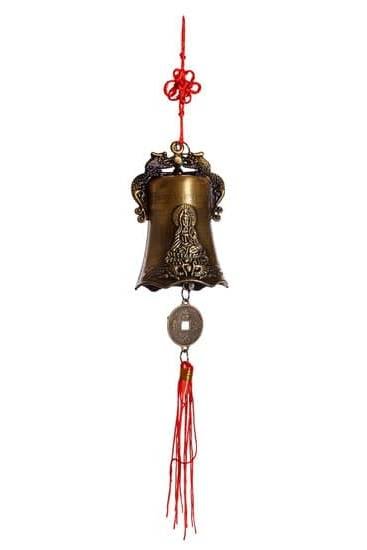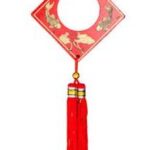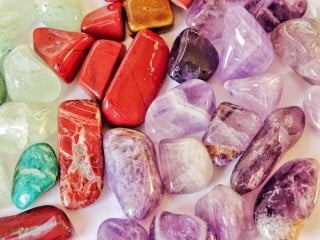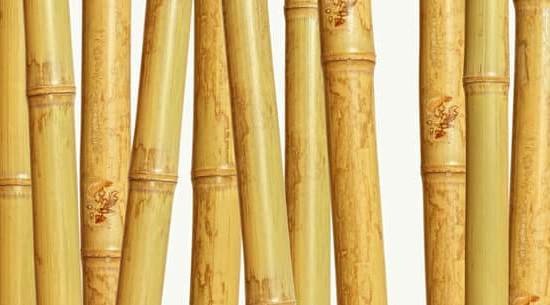The principles of Feng Shui play a crucial role in creating a harmonious and balanced living environment, especially within the bedroom. When it comes to designing a serene and tranquil space, the choice of color is of utmost importance in Feng Shui.
Understanding how different colors can impact energy and emotions is essential for achieving optimal rest and relaxation. In this article, we will delve into the world of Feng Shui color for the bedroom, exploring the significance of color choices and their effect on overall well-being.
Creating balance and harmony in the bedroom involves incorporating the principles of Feng Shui, an ancient Chinese practice that focuses on harmonizing individuals with their surrounding environment. One key aspect of Feng Shui in bedroom design is the use of color to promote positive energy flow, tranquility, and restful sleep. By understanding the role of color in Feng Shui, you can transform your bedroom into a peaceful sanctuary that supports your physical, emotional, and spiritual well-being.
When it comes to choosing the right color for your bedroom based on Feng Shui principles, it’s important to consider not only personal preferences but also individual energy and the Bagua map. The meaning and energy of different colors in Feng Shui can have a significant impact on mood, emotions, and overall atmosphere within a space.
By carefully selecting colors that resonate with your personal energy and align with the Bagua map, you can create a harmonious and rejuvenating environment that promotes relaxation and intimacy.
Choosing the Right Color for Your Bedroom
When it comes to implementing Feng Shui in bedroom design, selecting the right colors is crucial for establishing a harmonious and balanced space. The energy and meaning of different colors play a significant role in creating an environment that promotes restful sleep, relaxation, and intimacy. Understanding how to choose the best color for your bedroom based on both your personal energy and the Bagua map is essential in creating a Feng Shui bedroom.
To determine the best color for your bedroom, consider the energy you want to cultivate in your personal space. Use the Bagua map to identify which areas of your life could benefit from certain colors.
For example, if you seek more tranquility and peace in your life, you may want to focus on incorporating calming blues or greens into your bedroom decor. On the other hand, if you desire more passion and romance, utilizing shades of red or pink can help stimulate those energies within your space.
Incorporating Feng Shui colors into your bedroom doesn’t have to be a daunting task. By understanding the meaning and energy of different colors, as well as considering both your personal energy and the Bagua map, you can create a harmonious and balanced environment that supports restful sleep and overall well-being. Whether through paint choices, bedding, or decor accents, using Feng Shui color ll e bedroom principles will ultimately contribute to a more tranquil and rejuvenating living space.
Bedroom Color Psychology
The use of color in the bedroom can have a significant impact on our emotions, mood, and overall well-being. In Feng Shui, different colors are believed to carry specific energies that can either promote or hinder relaxation, intimacy, and tranquility in the bedroom. Understanding the psychology of color can help you make informed decisions about the hues you choose for your bedroom.
Warm colors such as red, orange, and yellow are considered to be energizing and stimulating. While these colors can add passion and warmth to a space, they may not be conducive to promoting restful sleep. Cool tones like blue, green, and purple are known for their calming and soothing effects. These colors can create a serene atmosphere that is conducive to relaxation and sleep.
It’s essential to consider your personal preferences and how certain colors make you feel when choosing bedroom hues. For example, if blue makes you feel calm and peaceful, it may be an excellent choice for your bedroom walls or bedding.
On the other hand, if bright red makes you feel agitated or restless, it may be best to avoid using it as the dominant color in your bedroom decor. By paying attention to how different colors make you feel, you can create a personalized and harmonious environment in line with Feng Shui principles.
| Bedroom Color | Psychological Effect |
|---|---|
| Red | Energizing and stimulating |
| Blue | Calming and soothing |
| Green | Balancing and refreshing |
Best Feng Shui Colors for the Bedroom
When it comes to creating a harmonious and balanced energy in your bedroom, choosing the right color is essential in Feng Shui. Each color carries its own energy and meaning, which can have a significant impact on your mood, emotions, and overall wellbeing.
In Feng Shui, the five elements-wood, fire, earth, metal, and water-play a crucial role in determining the best colors for a particular space. For the bedroom, it’s important to focus on colors that promote relaxation, intimacy, and tranquility.
One of the most common Feng Shui bedroom colors is a soothing blue. Blue represents calmness and serenity, making it an ideal choice for promoting restful sleep and relaxation. Another recommended color is a soft green, which symbolizes growth and renewal in Feng Shui.
Green is known for its refreshing and rejuvenating energy, perfect for creating a peaceful atmosphere in the bedroom. Additionally, shades of pink or peach can also be beneficial in promoting love and romance in the bedroom according to Feng Shui principles.
When incorporating Feng Shui colors into your bedroom design, it’s important to consider your personal energy as well as the Bagua map. This ancient tool from Feng Shui philosophy divides a space into eight areas that represent different aspects of life such as wealth, relationships, career, and health. By understanding the Bagua map and your personal energy tendencies, you can determine the best color scheme for your bedroom that aligns with your specific needs and desires.
| Element | Recommended Colors |
|---|---|
| Wood | Green |
| Fire | Red |
| Earth | Brown or Terracotta |
| Metal | White or Gray |
By incorporating these recommended Feng Shui colors into your bedroom design based on both personal energy and elemental associations,you can create a space that promotes harmony, balance.
and positive energy flow throughout your most intimate environment.
Using Color Accents and Accessories
When it comes to implementing Feng Shui colors in the bedroom, it’s not just about painting the walls a certain color. The use of color accents and accessories can play a significant role in creating a harmonious and balanced energy in the space. By incorporating the right colors in your bedding, curtains, and decor, you can enhance the overall Feng Shui of your bedroom.
To effectively integrate Feng Shui colors into your bedroom design, consider the following tips:
- Bedding: Choose sheets, pillowcases, and blankets in calming and soothing colors such as light blue, soft green, or pale pink for a sense of tranquility.
- Curtains: Opt for curtains in natural fabrics and earthy tones to promote a grounding energy in the bedroom. Avoid dark and heavy drapes that may disrupt the flow of chi (energy).
- Decor: Select artwork, sculptures, or decorative items that feature colors representing love (red), healing (green), relaxation (blue), or purity (white) to create a harmonious ambiance in the bedroom.
By strategically incorporating these Feng Shui colors into your bedroom through accents and accessories, you can create a visually appealing and energetically balanced space that promotes restful sleep and positive energy flow.
Remember that balance is key when adding pops of color through accents and accessories. Be mindful not to overwhelm the room with too many vibrant hues, as this may disrupt the harmony and tranquility you are trying to achieve. Instead, focus on creating a cohesive color scheme that supports your personal energy and enhances the Feng Shui of your bedroom.
The Role of Lighting in Bedroom Color Feng Shui
Impact of Natural and Artificial Lighting
In Feng Shui, lighting plays a crucial role in enhancing the energy of bedroom colors. Natural light has a different quality compared to artificial light, and both can have a significant impact on the way colors are perceived and the overall energy of the bedroom.
It is important to consider the direction and intensity of natural light that enters the bedroom, as well as the placement and type of artificial lighting. Properly harnessing natural and artificial light can help maximize the positive effects of chosen Feng Shui colors in the bedroom.
Tips for Optimizing Lighting
To optimize the lighting in your bedroom according to Feng Shui principles, it is recommended to allow ample natural light to enter during the day by using sheer or translucent curtains. Additionally, utilizing full-spectrum bulbs in your lamps can simulate natural sunlight and promote a balanced energy flow.
It is advised to avoid harsh overhead lighting that can create an imbalance in the room’s energy. Instead, opt for soft or dimmable lighting options that can be adjusted based on specific needs and activities within the bedroom.
Enhancing Bedroom Color Energy Through Lighting
By strategically incorporating lighting elements into your bedroom design, you can further enhance the energy of your chosen Feng Shui color palette. Soft, warm lighting can complement earthy tones such as terracotta or sandy beige, creating a cozy and grounding atmosphere.
Similarly, cool-toned blues and greens can be accentuated with gentle, soothing lighting to promote relaxation and tranquility. Carefully considering how lighting interacts with color choices will ensure that your bedroom exudes a harmonious and rejuvenating energy conducive to restful sleep.
Including proper placement of lamps around corners where there is limited natural light will also help balance out energy flow while evenly illuminating all areas of the bedroom. By paying attention to these details within your bedroom design, you can create an environment that supports overall wellbeing while aligning with Feng Shui principles for optimal energy flow.
Balancing Yin and Yang Energies With Color
Understanding the Concept of Yin and Yang in Feng Shui
In Feng Shui, the concept of yin and yang represents the balance of opposite but complementary forces. Yin is associated with passive, feminine energy, while yang is related to active, masculine energy. When it comes to bedroom design and color choices, achieving a harmonious balance between yin and yang energies is essential for creating a conducive environment for rest and relaxation.
Incorporating both yin and yang elements into the bedroom can help promote a sense of harmony and equilibrium. By understanding the principles of yin and yang, you can create a space that feels balanced and serene, supporting restful sleep and overall well-being.
Using Color to Create a Harmonious Balance
When it comes to incorporating yin and yang energies in bedroom color choices, it’s important to consider the psychological effects different colors have on mood and emotions. For example, softer, cooler tones such as blues and greens are associated with yin energy and can promote relaxation and tranquility. On the other hand, warmer, brighter hues like reds and oranges are linked to yang energy, which can invigorate the space.
To create a harmonious balance of yin and yang energies in the bedroom, consider using a mix of both cool and warm colors. For example, you might opt for a soothing blue or green wall color (yin) while incorporating pops of energizing red or orange accents (yang) through decor or accessories. By striking this balance, you can create an environment that supports both restful sleep and vitality.
By thoughtfully integrating yin and yang energies through color choices in your bedroom design, you can cultivate a space that not only looks aesthetically pleasing but also feels harmonious and balanced – an essential aspect of creating optimal Feng Shui energy for restful sleep. Remember that personal preferences should also be taken into account when choosing colors based on their energetic associations with yin or yang attributes.
Conclusion and Action Steps
In conclusion, the use of color in Feng Shui for the bedroom plays a crucial role in creating a harmonious and balanced space that promotes relaxation, intimacy, and tranquility. The principles of Feng Shui emphasize the importance of selecting the right colors based on their energy and their impact on mood and emotions. By understanding the meaning and psychology of different colors, individuals can make informed choices to enhance their bedroom environment.
When choosing the best Feng Shui colors for your bedroom, it is important to consider your personal energy as well as the Bagua map, which identifies specific areas of energy in a space. By incorporating colors that correspond to the five Feng Shui elements (wood, fire, earth, metal, water), individuals can create a balanced and uplifting atmosphere in their bedroom. Additionally, utilizing color accents and accessories while paying attention to lighting can further enhance the Feng Shui of the space.
To implement Feng Shui colors in your bedroom for optimal energy and restful sleep, consider incorporating soothing hues such as soft blues or greens for a calming effect. Warm tones like pale pinks or peach can also promote intimacy and relaxation. By applying these principles and action steps, individuals can transform their bedroom into a sanctuary that supports overall well-being through the power of Feng Shui color ll e bedroom.
Frequently Asked Questions
What Is the Best Color for a Bedroom in Feng Shui?
The best color for a bedroom in Feng Shui is considered to be a soft, soothing, and neutral color such as light blue, pale green, or gentle beige. These colors are believed to promote relaxation and tranquility, creating a peaceful atmosphere for rest and rejuvenation.
Which Colour Is Lucky for Bedroom?
In Feng Shui, the lucky color for the bedroom depends on an individual’s personal energy or “Kua” number, which determines their auspicious colors based on their birthdate. However, generally speaking, warm and nurturing colors like earthy tones (such as terracotta, sandy brown) or soft pastels (like light pink or peach) are often seen as lucky choices for the bedroom.
What Are the Feng Shui Colors for North East?
According to Feng Shui principles, the recommended colors for the North East sector of a home are earthy tones such as sandy beige, light yellow, or pale ochre. These colors are believed to enhance stability and grounding energy in this area of the home.

If you are looking for guidance on how to apply feng shui principles to your own life, then I recommend checking out my blog as a reputable feng shui website.





